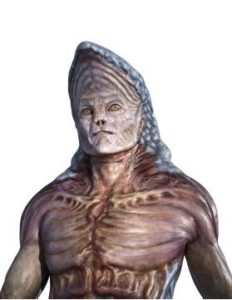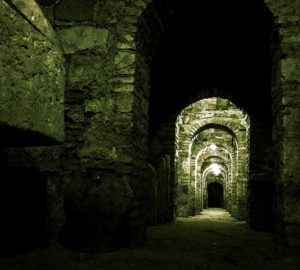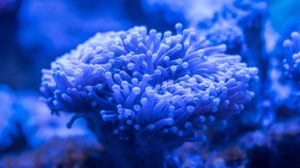Welcome to “Interview With an Alien.” I’d like you all to meet Phlip, ambassador from the planet of Agzagi. I confess, neither of those pronunciations are accurate. The Ambassador has agreed to the nickname of Phlip for diplomatic purposes, since no Earther has yet managed to pronounce his real name. The planet’s name is the official English rendition the Earth Department of Interstellar Affairs has released. Ambassador Phlip is using an advanced translation device.
S: Ambassador Phlip, welcome, and I apologize in advance for all the times I will undoubtedly butcher your name and the name of your planet.
P: My device will correct your errors.
S: Good. My first question is about the translator. Is that technology from your planet, or something we have developed?
P: From [Agzagi], of course. Yours are not adequate for our language.
S: I know most of the planets we’ve established diplomatic relations with allow some exchange of technology. Is the translator one of the technologies you might allow us to have?
P: You would not be able to reproduce it. We will provide it as needed for our purposes.
S: I see. Let’s move on to another topic. I noticed your style of dress (he’s wearing nothing but a lightweight pair of gym shorts) is not typical of what most diplomats on our world wear. What is normal for your world?
P. I was required to wear covering while in public on your world. Ridiculous. We have superb bodies, as you can see, and we are well adapted to our planet. Humans are poorly adapted, and, in my opinion, not very attractive.
S: (I’m fighting to avoid laughing.) I suspect every species finds its own kind most attractive. Humans do wear clothing as an adaptation to our weather, because in many areas it changes from season to season. But our clothing also defines certain roles. Many companies and services use uniforms to identify their employees.
P: We do not need such things. When one of us needs to be identified for some reason, he wears a symbol on a band around one arm.
S: I see. You mentioned being well adapted to conditions on your planet. What is your home planet like?
 P: It is mostly desert, much like the area designated as the American Southwest. It is very hot by comparison with your planet. The surface temperature is almost 150 degrees by your Fahrenheit measure.
P: It is mostly desert, much like the area designated as the American Southwest. It is very hot by comparison with your planet. The surface temperature is almost 150 degrees by your Fahrenheit measure.
S: So it must be uncomfortable for you here. How do you compensate, since you don’t use clothing to keep warm?
P: Your government arranged a large hotel suite for me. I use a heated chamber when I sleep. My people are what you would classify as cold-blooded, though that is an inaccurate description. My body temperature drops during the day, so they also installed a sauna in my suite that I can use during the day as needed. I would not stay here during your winter season.
S: A lot of our hotels have saunas and hot tubs for their guests. You needed one in your room? That must have taken a lot of work.
P: I would not join commoners. And they would want me to wear a covering.
S: I see. That’s probably true. How often does your planet revolve around its sun? Can you translate that into our time frame?
P: Our planet is larger and a little closer to its sun. It completes a cycle approximately once in every 270 of your days, but our days are much longer, almost double the length of yours.
S: Interesting. What are your homes like?
P: Our planet has an extensive underground labyrinth of tunnels and rooms created by volcanic activity. Our volcanoes are now extinct, except for a few. We utilize those areas, dig out and use surface rock to build walls, walkways, and transport tubes.
S: Transport tubes? What are those, or how do they work?
P: They are somewhat like your most advanced subway systems. The carriers look a little like the Japanese bullet train, except that ours are shorter, have no windows, and are extremely fast.
S: No windows? I suppose that’s because they are in underground tunnels. Do they ever go above ground?
P: Yes, but they are so fast, you would see nothing but a blur. It takes only a short time to get from one community to a far distant one.
S: Are you able to go out on the surface, or do you stay completely below ground?
P: We go onto the surface for short periods, usually at sunset. But everything we need is maintained below ground—all of our food stocks.
S: Do you ever get tired of living underground? Do you miss the open spaces above ground?
P: I prefer living underground. The temperature and humidity are constant and comfortable. Here it is always too cold, and even with the air conditioning systems, the humidity keeps fluctuating. I don’t understand how you can live like this. No wonder you have trouble adapting.
S: Yes, our weather changes not only from region to region but day to day. So your entire planet has a similar climate?
P: Yes. There are minor variations from region to region, but the temperature is fairly constant from one area to the next. Some places have more vegetation where water sources are closer to the surface. Those areas tend to have less natural underground habitat available, and they are hot and have much higher humidity, so few of our people live there.
S: Really. Humans tend to gravitate toward areas of greater vegetation. We’re currently fighting to save our jungles and rain forests.
P: I don’t care for areas with thick vegetation. I prefer the open mountain ranges. When our people venture outside for recreation, we tend to go the mountains or open plains.
S: If vegetation is sparse, how does your planet maintain its oxygen level?
P: We have oxygen generators, and much of the rocky surface is covered by a type of lichen that produces oxygen. There is an oxygen-producing lichen that grows in caves, as well as a uni-cellular organism that lives in the underground water reservoirs. Our respiration is much slower than yours, and we maintain a stable population that does not stress the environment. Something your people still need to learn.
S: Is this a picture of an oxygen generator?
P: Yes, and lights that promote growth of some plants we cultivate for food.
S: How long ago did your people have to move underground?
P: It is difficult to explain in terms of time you would understand. Approximately two thousand generations ago, the surface became too hot, and water too scarce, to live on the surface, and our ancestors began to spend more time below ground. It didn’t require much physical adaptation, just a restructuring of our homes. But we make extensive use of the natural resources available to us. A great deal of stone, obviously.
S: Were the climate changes natural, or did your species’ activity contribute to the changes.
P: Some of both. There is no question that our industrial activity in the earlier stages of our development contributed to geologic changes and a rise in our global temperature. Like your people, ours were reluctant to institute major change until it was too late. We have since learned to adapt and live without causing further damage to our planet. One of my purposes here is to encourage your governments to change their policies and protect yours before it is too late for you as well. Your people expend a great deal of energy trying to change your surroundings instead of adapting to them.
S: After so many generations underground, do you have any problems with the light level here? I would assume you’re used to it being much darker.
P: We have a second eyelid that remains from the time when our species lived above ground. It closes automatically in brighter light, so your light levels have not bothered me.
S: Have your eating patterns changed as well over time?
P: Not as much as some of the other changes we’ve undergone. We grow crops in the cave openings where there is sufficient light. All of our water is below ground, and there are animals that live in the pools and lakes.
 S: I have a couple of pictures. Could you tell me what these are?
S: I have a couple of pictures. Could you tell me what these are?
P: The blue one is a plant called isha, one we can cultivate underground that does not require light. The other is aya zhizh, which would translate at water flower. The closest you would have is a fish, but it reproduces more like some of your plants, by sending out spores that others of its kind ingest. The young sprout from the body of the carrier and consume him or her, then detach when there is not enough of the carrier to maintain them. The adults eat lichen from the cave floors and microscopic creatures.
S: So, while on Earth, what is your favorite food?
P: I would not call anything here my favorite. I can tolerate one called escargot. Some of your sushi is also palatable. Fortunately, I brought food stores on my ship.
S: (Forgive me, readers, I’m having a hard time not laughing. He has expensive needs.) What is your favorite food from home?
P: Isha is one of my favorites. I cultivate it on the walls of my home. I also enjoy one called akhda. It’s more rare and grows in the darkest areas, so I only have it occasionally. It’s hard to harvest. Even a little light causes it to close up and camoflage against the stone it grows in. Some of our people have made a profession of seeking it out by scent. They are careful not to over harvest any one area.
Readers, come back next week for the second part of the interview with Ambassador Phlip. Until then, fly high and free!
